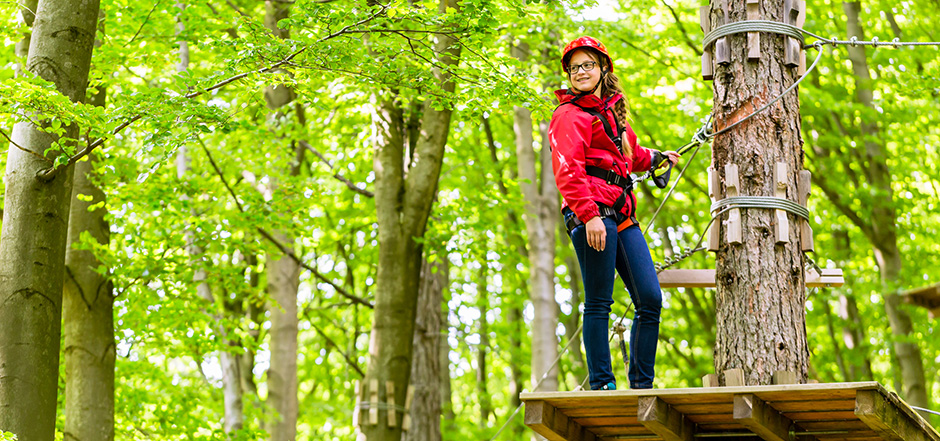Facing a Task Unfinished, Part 2: Holding the Ropes
(Check out Part 1 of this series, “The Call.”)
Have you ever been on a ropes course? If so, you may remember an exercise where one person went across a rope strung like a tightrope, and others held ropes below. These smaller ropes connected to the tightrope and helped provide the rope-walker with balance and support. In fact, the only way the walker could make it across is if the other people were doing their part, holding their ropes.
In other words, even though the focus might be on the person on the tightrope, a team effort of many ropes helps make the walk possible. And without those ropes, it could not happen at all.
Rope-Holders
You’ve got a rope. And it’s a rope to the missionaries you know. They’ve invited you to say, “OK, I’ll stand under that tightrope for their sake. I’ll pull on the rope.”
That pull could look like a number of things. It might look like prayer. It might look like emails. It might look like financial contributions. It might look like paying attention to what’s going on in the part of the world where the missionaries serve and thinking immediately about what kind of impact it might have on them and their ministry.
The tendency for people, especially Americans, who live in another part of the world is to feel cut off, stranded. And the ropes tell them, “That’s not going to happen. We’re here. We’re holding you up.”
That’s a part of the alchemy of intercession. It’s something far bigger than anything we can ever ask or imagine. And we should take great joy and excitement in having the opportunity to be rope-holders.
You see, it’s not a burden. It’s really not. It’s not an obligation. It’s actually an invitation, to somehow by God’s mercy, get in on what it is that God wants to do in a very specific way through those who are called to serve him in missions.
Global Christians
The Rev. Jan Echols reminds us of some important words from John Stott: “We must be global Christians with a global mission who serve a global God.’” She adds, “My hope and prayer is that everyone … will become global Christians through joining [those] on mission, in a commitment to pray, to give, to go.”
That’s it, in a nutshell. All of us are goers. The question is: where? All of us are prayers. The question is: for whom? All of us are givers: the question is only: how? And in the places where God has put us as we continue to say yes, not to make us better human beings, but to be available for God to use us, a shift happens inside, and all of a sudden the phrase, “God so loved the world,” becomes something that transforms our hearts.
So let us pray:
Lord, in the midst of the largeness of the missionary call, we pray. In the midst of the small choices that are made every day to live or not to live out this call, we pray that you would be more in our hearts.
Expand us, O Lord. Help us more and more to see this lonely, broken and beautiful planet as you see, in your great love and compassion, which knows no end and crosses every boundary: race and class, tribe and geography, language and people. Because it is your desire that all be held within your saving grace.
And so, Lord, in the midst of such an extraordinary invitation, we do say, “Oh Lord, please change our hearts, and use as you see fit.” For it is in the name of Jesus Christ our Lord that we pray. Amen.
Whose ropes are you holding? How are you becoming a global Christian? Share this blog and your response on Twitter. Please include my username, @revgregbrewer.
(This post is an adaption of Bishop Brewer’s sermon on October 15, 2017, at the Cathedral Church of St. Luke, Orlando, Florida.)
Unless otherwise noted, Scripture quotations are from the New Revised Standard Version Bible, copyright © 1989 the Division of Christian Education of the National Council of the Churches of Christ in the United States of America. Used by permission. All rights reserved.

